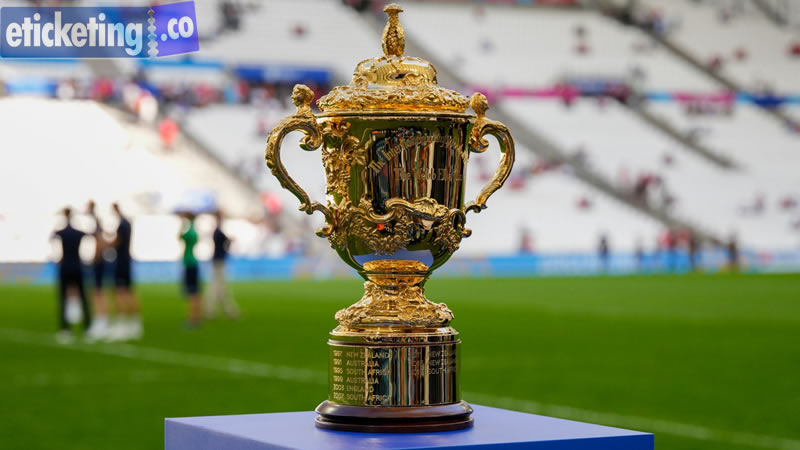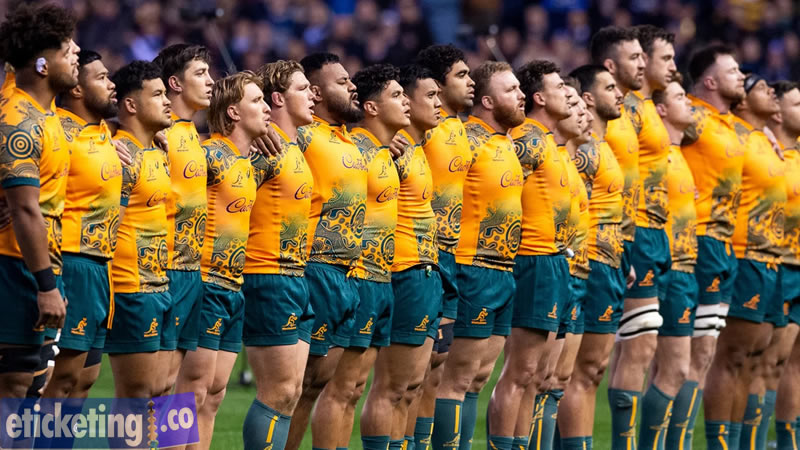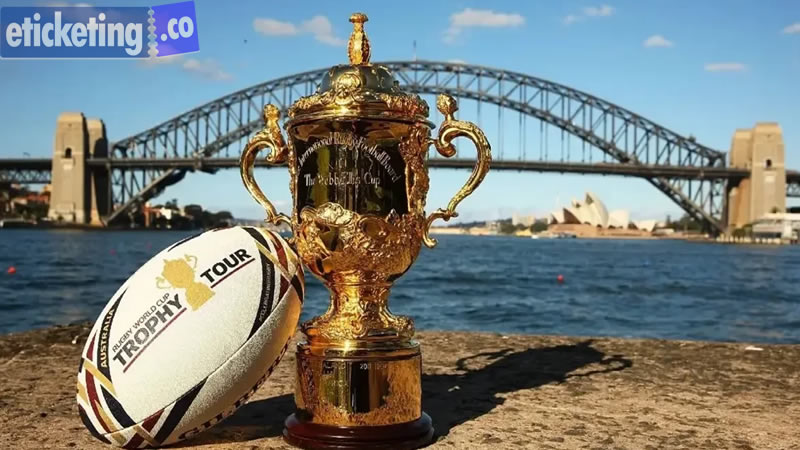Men’s Rugby World Cup 2027 will be the biggest tournament in the sport’s history. With 24 teams battling it out for the Webb Ellis Cup in two years. Australia will get things underway in the opening game at Perth Stadium on 1 October 2027. kickstarting a new era for a Men’s Rugby World Cup. But how does it all work?
Don’t miss your chance to grab Rugby World Cup Tickets from eticketing.co. Witness the world’s best rugby nations compete for the Webb Ellis Cup across Australia’s iconic stadiums. Book early for the best seats and experience the thrill of world-class rugby!

Marking exactly two years to the day that the tournament will begin, World Rugby has unveiled the format for Rugby World Cup 2027. In previous tournaments, going back to the Rugby World Cup 2003, we have traditionally had 20 teams that were divided into four pools of five teams.
The top two teams from each pool would then progress to the quarter-finals, which were the first round of the knockouts. At Australia 2027, we will have 24 teams, and therefore the tournament requires a new format and one big change: a Round of 16 as the first knockout game.
There will now be six pools with four teams in each. The top two teams from each pool will progress to the Round of 16, while the four best third-place teams will also progress. Those four teams will be determined by competition points first.
Rugby World Cup: Player Welfare Remains a Top Priority
And if that doesn’t separate the sides, then points difference and try difference will be the next factors used, respectively, to determine which teams make it out of the pool stage. For the fans, yes! Instead of 48 matches like we had at the last Men’s Rugby World Cup, we now have 52 games.

But crucially, it does not equate to more games for the players. With player welfare at the forefront of decisions made around the tournament’s structure, World Rugby has adopted this format to ensure maximum jeopardy, drama, and excitement for the teams as well as spectators, while not compromising on the health of those who play the game.
Five minimum rest days will be observed between matches in Australia. While we have more knockout matches, the change from five teams in each pool to four has meant one fewer match for each team in the pool stage.
For example, when South Africa won the Rugby World Cup 2023, they played seven games. Four games in the pool stage and a quarter-final, a semi-final, and a final. If they were to reach the final of the Rugby World Cup 2027, they would still only play seven games: three games in the pool stage, then the Round of 16, a quarter-final, a semi-final, and a final.
Get your Rugby World Cup 2027 Tickets now on eticketing.co, the trusted platform for rugby fans worldwide. Enjoy the ultimate sporting spectacle as the tournament returns to Australia in 2027. Join fans from across the globe and celebrate rugby’s biggest event live!
Rugby World Cup Final: Fans Treated to Four Extra Matches in 2027 Tournament
But fans still get four extra matches, and as an added bonus. Having an even number of teams in each pool means no team has to sit out a round while the others play each other. So, despite adding four extra teams, the pool stage is now in fact shorter. While the Rugby World Cup 2023 lasted 50 days in total, the Rugby World Cup 2027 will take place over 43 days.
It will therefore be a more condensed and exciting tournament, without adding to the players’ workload. In previous formats, the quarter-finalists would just be the winners of each pool against the runners-up of another pool. With six pools feeding 16 spots in the first round of the knockouts, that requires some changes.

First, have a look at this graphic, which shows the road to the final. As you can see, the teams that finish top of Pool A, B, C, and D will face a third-place team in the Round of 16, while the teams that finish top of Pool E and F will face teams that finished second in their pool.
Likewise, some teams that finished second in their pool may face the winner of another pool, while some will face the runners-up. While on the surface that may seem slightly unfair, that imbalance is addressed in the next round. Let’s take Pool A and Pool E as an example.
Rugby World Cup 2027 Tickets are now available at eticketing.co! Be part of the excitement as Australia hosts the biggest rugby tournament in the world. Secure your seats today and witness the world’s top rugby nations battle for the Webb Ellis Cup. Don’t miss this chance to experience world-class rugby live in action!
